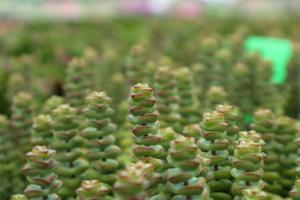Are Rubber Tree Plants Poisonous to Dogs?
When it comes to household plants, many dog owners are understandably concerned about whether or not they are safe for their pets to be around. One plant that is commonly found inside homes is the rubber tree plant. If you are a dog owner who has a rubber tree plant in your home or is considering getting one, you may be wondering if it is poisonous to your furry friend. The short answer is yes, rubber tree plants can be poisonous to dogs.
Why Are Rubber Tree Plants Poisonous?
The rubber tree plant, also known as Ficus elastica, contains a toxic substance called ficin. This substance is found in the leaves, sap, and even the roots of the plant. When a dog ingests any part of the rubber tree plant, they can experience a range of symptoms, from mild discomfort to severe toxicity. Some of the symptoms of ficin toxicity in dogs include vomiting, diarrhea, abdominal pain, lethargy, and loss of appetite. If a dog ingests a large enough amount of ficin, they may experience more severe symptoms such as seizures, difficulty breathing, and even death.
What Should You Do If Your Dog Eats a Rubber Tree Plant?
If you suspect that your dog has ingested any part of a rubber tree plant, it is important to seek veterinary care right away. Your veterinarian will be able to evaluate your dog's symptoms and provide appropriate treatment. In some cases, treatment may involve inducing vomiting to remove as much of the plant material from your dog's system as possible. Your veterinarian may also recommend administering activated charcoal to absorb any remaining toxins in your dog's digestive system. In more severe cases, your dog may require hospitalization for supportive care, including IV fluids, anti-nausea medication, and monitoring for seizures or other complications.
How Can You Keep Your Dog Safe From Rubber Tree Plants?
The best way to protect your dog from rubber tree plants is to either not have them in your home or to keep them out of reach of your dog. Place your rubber tree plant in an area that your dog cannot access, such as on a high shelf or in a room that your dog does not enter. Make sure to also keep any fallen leaves or other debris from the plant cleaned up, as dogs may be tempted to eat them. If you notice any signs of ficin toxicity in your dog, such as vomiting, diarrhea, or lethargy, seek veterinary care right away.
Conclusion
Rubber tree plants can be a beautiful addition to your home, but they can also be dangerous to your dog if ingested. If you have a rubber tree plant in your home or are considering getting one, make sure to keep it out of reach of your dog and to monitor your dog for any signs of ficin toxicity. If you suspect that your dog has ingested any part of a rubber tree plant, seek veterinary care right away. By taking these precautions, you can help keep your furry friend safe and healthy.

 how many times do yo...
how many times do yo... how many planted tre...
how many planted tre... how many pine trees ...
how many pine trees ... how many pecan trees...
how many pecan trees... how many plants comp...
how many plants comp... how many plants can ...
how many plants can ... how many plants and ...
how many plants and ... how many pepper plan...
how many pepper plan...































